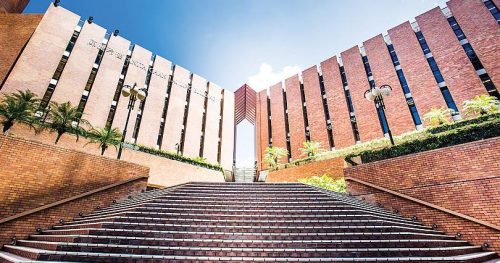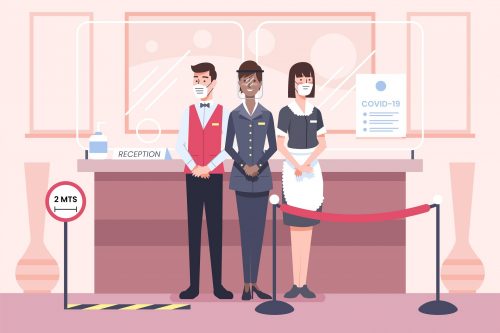The Art of Upselling
https://www.travelfoundation.org/wp-content/uploads/2021/09/the-art-of-upselling.jpg 810 426 wttc2 wttc2 https://secure.gravatar.com/avatar/8ceb3c33b6d7e246ff938130ace90a65?s=96&r=g
 Hung Hom, Hong Kong SAR, September 18, 2021 / TRAVELINDEX / Online upselling is an ever more popular way for hotel companies to bring in revenue. However, it remains unclear whether online upselling complements or replaces in-person strategies such as front-desk upselling. In an important exploratory study, Professor Basak Denizci Guillet of the School of Hotel and Tourism Management (SHTM) at The Hong Kong Polytechnic University sought to answer this question. Her findings generate crucial insights for hotels in volatile and challenging times, while also providing an “upselling model for the industry that considers the complexities of today’s multifaceted ecommerce environment”.
Hung Hom, Hong Kong SAR, September 18, 2021 / TRAVELINDEX / Online upselling is an ever more popular way for hotel companies to bring in revenue. However, it remains unclear whether online upselling complements or replaces in-person strategies such as front-desk upselling. In an important exploratory study, Professor Basak Denizci Guillet of the School of Hotel and Tourism Management (SHTM) at The Hong Kong Polytechnic University sought to answer this question. Her findings generate crucial insights for hotels in volatile and challenging times, while also providing an “upselling model for the industry that considers the complexities of today’s multifaceted ecommerce environment”.
Hotels can increase their revenue in various ways – most obviously by attracting new customers. However, this can be costly and time-consuming. An increasingly popular alternative is upselling, whereby existing customers are persuaded to spend more on an already agreed transaction, such as by upgrading to a superior hotel room.
Upselling helps hotels to “sell higher room categories, such as club and suite rooms, which would otherwise be empty or used for free upgrades”, says the researcher. The customer also benefits from upselling by getting a superior room at a reduced price. Upselling can take place at “any point during the customer cycle”, such as during the booking process, between booking and arrival, during check-in, or even at check-out with an offer for the next stay.
Traditionally, a hotel’s front desk staff would upsell to guests during check-in. In today’s digital era, however, more and more hotels are introducing online upselling systems. These systems send personalised upselling messages at various points in the booking cycle, give guests the opportunity to “bid for a better room”, and allow customers to select upselling options through the online portal.
However, as little research has been done on this topic, it is unclear whether online and offline upselling channels are complementary, offering customers a choice of the most convenient channel, or whether online upselling has had a negative effect on offline upselling. Dr Guillet aimed to explore this issue and also to investigate whether hotel customers’ profiles and sociodemographic backgrounds influence their likelihood of bidding for superior rooms in the upselling process.
A mixed methods approach, involving the collection of both qualitative and quantitative data, was chosen for the study, which the researcher described as “exploratory”. The qualitative data were collected in 2018 during 16 in-depth interviews with “hotel industry professionals familiar with online upselling”. The interviewees included revenue directors, consultants, front office managers and marketing directors working in hotels in the US, Europe and Asia. During the interviews, the hotel professionals were asked about their online upselling systems, why and how they used them, and how the hotels benefited from them.
In the second part of the study, conducted in the same year, the researcher partnered with an independent hotel company in Hong Kong to compare online and front-desk upselling. The hotel has 262 rooms, ranging from standard rooms to suites. For online upselling, the hotel uses a system called UpsellGuru, which offers customers with a reservation “a chance to bid for one or several different room types” by moving a slider to indicate the price they are willing to pay. The hotel can then decide “whether to accept or deny the upgrade offer within 24h”.
The industry professionals who participated in the interviews identified a number of customer and hotel-related factors that influence upselling. They all agreed that only customers who book directly or through an online travel agency are contacted for upselling offers, because an email address is essential. Otherwise, the professionals did not differentiate between customer characteristics for online and offline selling.
They did, however, identify a few customer characteristics that influence whether they might be contacted for upselling. For example, it seems easiest to upsell to customers who are staying for leisure rather than business, celebrating a special occasion, or travelling from abroad. However, as one respondent mentioned, sometimes the hotel receives more than 50 upselling bids a day. Therefore, when deciding whom to choose for upselling, it is difficult to take other factors into account apart from the potential increase in revenue.
The professionals also tended to focus on customers who booked the most basic rooms, because this makes it easier to find options for upselling, such as a larger room, a sea or harbour view, or club access with free breakfast, tea, and cocktails. Indeed, data from the second study showed that the “most popular upsells” were from a standard city view room to a standard harbour view room, and from standard city and harbour view rooms to club city and harbour view rooms.
There was a general consensus among the industry professionals that online and offline upselling “go hand in hand”, as there are advantages and disadvantages of both approaches. Front-desk upselling has the advantage of offering a larger customer base, but it is only possible to sell un-booked rooms on a single day, whereas online upselling can take place a few days before arrival. Online upselling offers greater involvement for customers because they select the price they are willing to pay rather than the hotel setting the price, as is the case with offline upselling.
The industry professionals were divided in their opinions on whether online upselling affects front-desk upselling. However, as one respondent pointed out, overall, only 30-40% of customers book directly or through an online travel agency, leaving many customers whom “front office staff can approach for upselling during check-in”. This suggests that online upselling will not replace front-desk upselling in the near future.
The findings of the second study, in which data were collected from UpsellGuru, confirmed that online upselling was not a substitute for front-desk upselling. In terms of the revenue brought in by the two channels, revenue from online upselling was greater overall than from offline upselling, yet during several months of the study this trend was reversed. In general, upselling revenue increased considerably after the introduction of UpsellGuru, partly because the change prompted the hotel to make its front-desk offers “more attractive to customers” by making the room prices more comparable with those offered online.
Hence, online upselling has certainly not had a negative effect and both channels help to increase revenue. As the researcher explains, it is likely that “the type of customers that choose to bid for upselling” differ from those who “respond positively to front-desk upselling offers”.
Of all the practical implications of the study, writes the researcher, “perhaps the most important one is the need to move away from treating each upselling channel as independent”. The two channels are complementary rather than substitutive, yet currently they “are not streamlined and aligned”. By taking a “more unified view” of customers, hotels can align their marketing efforts to maximise upselling across both online and front-desk channels. The key to achieving this “omni-channel approach to upselling” is to understand customers’ preferences better by collecting data that “go beyond the strategies hotels implement now”. An omni-channel approach also enables an “integrated, seamless experience across multiple devices and touchpoints”.
Overall, the researcher advises hotels to continue to invest in front-desk upselling. To ensure its success she suggests that employees such as front-desk staff should be “trained on the methods and importance” of data collection, and should receive “specialised, regular training in upselling”.
This exploratory study provides an interesting overview of current upselling approaches in the hotel industry. It clearly shows that there is room for both online and offline upselling channels, as long as they are aligned and streamlined. Nevertheless, as the researcher concludes, the study “opens up more questions than it actually answers about upselling in the hospitality industry” and further research is needed to better understand how to achieve the omni-channel approach and improve data collection to “generate a single view of the customer from all distribution channels”.
Basak Denizci Guillet (2020). Online Upselling: Moving Beyond Offline Upselling in the Hotel Industry. International Journal of Hospitality Management, Vol. 84, 102322.
First published at TravelNewsHub.com – Global Travel News





